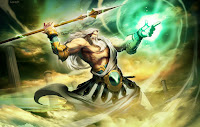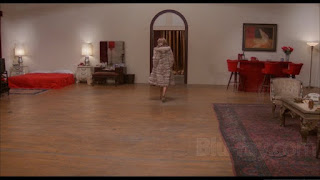It
was that time of the year again for me, time to attend the
latest (10th)
Quinn Memorial at UBC and to write and reflect on the issues raised.
This time around we had the pleasure of seeing Dr. Susan Carey, a
Harvard professor, talk about concepts. The title of the talk was
“Concept Acquisition: Beyond Logical Construction and the Building
Blocks Model.”
Susan
Carey was introduced by UBC's Head of the Psychology Department Geoff
Hall who enumerated all her distinguished awards and accomplishments
and summarized her view as one that gave more credit to infants'
minds than Piaget had done previously. In fact, her views were also
opposing a number of ideas propagated by Locke and Berkeley.
All
this sounded interesting and aroused my curiosity. I have often felt
that Piaget had generally underestimated the rich and resourceful
mind and the mental and other capabilities of children, but it would
be much better to actually hear it from someone who was an expert on
the matter.
Yet
as so often happens, I was disappointed at first. What she was
talking about mostly had little to do with what I thought she was
going to talk about. In fact, it seemed initially that she was not
showing us how children are smarter than we think, but that they, in
fact, deceive us!
But
first thing first. Susan Carey asked us the simple but poignant
question of why understanding can be at times easy and at other times
hard. The general view is that we are born with a set of innate
primitives. This is basically our knowledge base that can increase
its content but not its processing capacity. In other words, we are
operating with an 18-month processor.
According
to this view, our learning cannot increase our expressive power. Put
differently, we are rather limited in terms of learning and
understanding new primitives since we have already acquired the
necessary linguistic and semantic blueprint, a set that is somewhat
set in stone. But Susan Carey disagrees with this view since new
primitives can be learned.
She
gave us an example of certain migrating birds. They travel over long
distances and do so at night. How do they know where to go? Is it
based on a set of innate primitives or do they learn and adjust? Or
in that specific case, how did the birds know where to go in the
dark?
One
theory is that they may have used the North Star Polaris. But how did
they know which one is the right one to follow as following an
erroneous star could take you - or rather the birds - to the wrong
place? Also, what is the North Star for us now, has not always been so
due to the Earth's rotational axis; in fact, about 14,000 years ago,
it used to be the star called Vega (and it will become Vega again in
12,000 years or so).
This
cannot be information passed on genetically from bird to bird
generations. There must be some learning involved, that is the
ability to create new primitives. That is when the computational
primitives come in. This is not just using your processor, but also
making it more powerful through the power of arithmetic.
How
does this knowledge happen and does it apply to humans as well or is
it simply for the birds? There are two methods we apply to learn
about numbers. One of them is the Parallel Individuation Model. This
means that we learn and count each number at a time, and see each
number as distinct and separate from other numbers.
Yet
there is also a process called the Analog Magnitude Model. In this
case, we process chunks of information at once and see them more as a
comprehensive set rather than as individually different or distinct
items. The ability to do this changes with practice, experience, and
age, but as a general rule of thumb, we can pay attention to and
“hold” 3 or 4 items at a time.
Susan
Carey then presented us with a bunch of dots grouped together and
asked us to guess how many there were. For lower numbers where less
crowding occurred, say 7 or 8 dots, we could make more confident and
accurate guesses, but once there were twenty or thirty dots, there
was too much noise and distortion, and we would be often wrong in our
estimates.
Hence,
she was explaining the acquisition of concepts via a mathematical/computational manner. I felt a bit disappointed because I had been
more interested in concept-making in terms of language and its
representation. Nonetheless, there were interesting bits of
information that caught my immediate eye and attention. For instance,
there was the surprising fact that children learn numbers at an early
age, but they do not “understand” them! In other words, they can
count from 1 to 10, but they do not know what that means!
She
showed us some videos of experiments done with young children. When
they were told to give a certain number of toys and they had
awareness of that number, they would do so correctly. However, if
they had no knowledge of that number, they would err. For example, a
child that does not know anything beyond 3 would grab an
indiscriminate amount of toys. They could still “count” up to
ten, but did not notice that the number “4” corresponded with the
four items in front of them, that is 4 toys put together.
This
was very interesting as we often show off the knowledge of our
children without awareness of the fact that their counting and these
numbers had no tangible relation with the facts and abilities! One
child, for example, would comment “Daddy, Mommy, and me” to talk
about any items in a set of 3. This shows that she has awareness that
the set of 3 corresponds with three, in this case very specific,
items.
In
a similar way, according to embodied simulation, this is how we learn
our first language. We have an image in our head and the spoken or
written word is used as an analogy; they are paired and associated
with each other using a representational scheme. For example, the
word One would be associated with “finger” and that would then
lead to a long-term memory of that particular concept, i.e. number.
We
often learn concepts and use logic to connect them with others, hence
building connections within our minds. But not all learning processes
as we have seen are through logic alone. We often use mathematical
representations. We know that adding one more to any set increases
the number and value of the set by one.
It may take us a few years to
be able to accomplish this feat, but at a certain age, we understand
it. This then can be expanded and applied to a number of other
computations, hence growing and diversifying our capacity to learn.
In other words, she has shown us that learning increases over time
and is not limited to a set of primitives.
Now
if you are slightly confused, you are not alone. As I am wont to do
at such events, I looked to personally chat with our presenter Susan
Carey for some clarifications. With my red wine in hand, I approached
her at the reception and asked her about embodied simulation and
Piaget. She gave me an answer that clarified my doubts and
confusion.
According
to her, embodied simulation is correct but a too simplistic view and
account of human learning. We are capable of much more. When a person
sees a dog, they do not simply associate the animal with the word
“dog,” but concept building goes beyond that. The person makes a
wide range of assumptions, such as the fact that there are many of
its kind and that this particular animal is different from other
animals, say a tiger or a squirrel.
Some
of these assumptions may be wrong or mistaken, but they are still
part of the inner world that the individual carries around with him
or her. We can see that this is not just associating one thing with
another à la Piaget, but that children at an early age already make
a number of assumptions vis-à-vis what they see. This shows more
activity and awareness of the human mind than was previously assumed,
and it may not be necessarily limited to humans as animals seem to
draw conclusions and notice connections as well.
All
this left me inspired. There is more to human learning than meets the
eye. I imagined the brain being capable of doing an infinite number
of tasks like the endless possible moves on a limited chess board. As
this was going through my head and our conversation had reached its
end, she surprised me with the following question: Was I a computer
scientist?
I
admitted I was not. I do not think that watching Mr. Robot
would make me a computer expert and my general suspicion regarding
technology has always prevented me from embracing technology more than
was necessary or pragmatic.
It was also the first time I had been
associated with computer science. Perhaps it was due to my question,
which she deemed both relevant and appropriate, or perhaps my look (I
think I was wearing a hoodie). Be it as it may, I left this talk
feeling slightly more accomplished knowing that I had added to and
updated my knowledge base.




